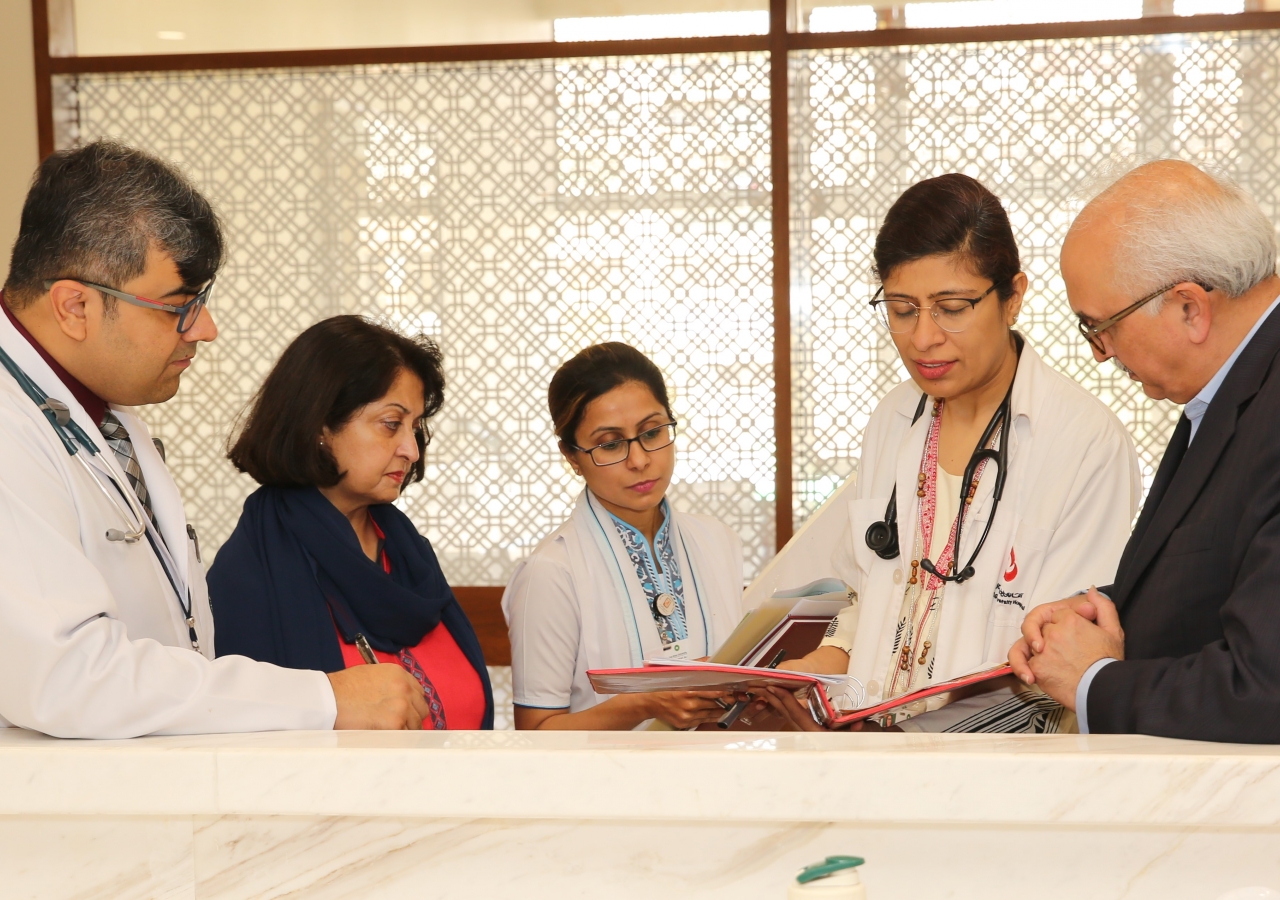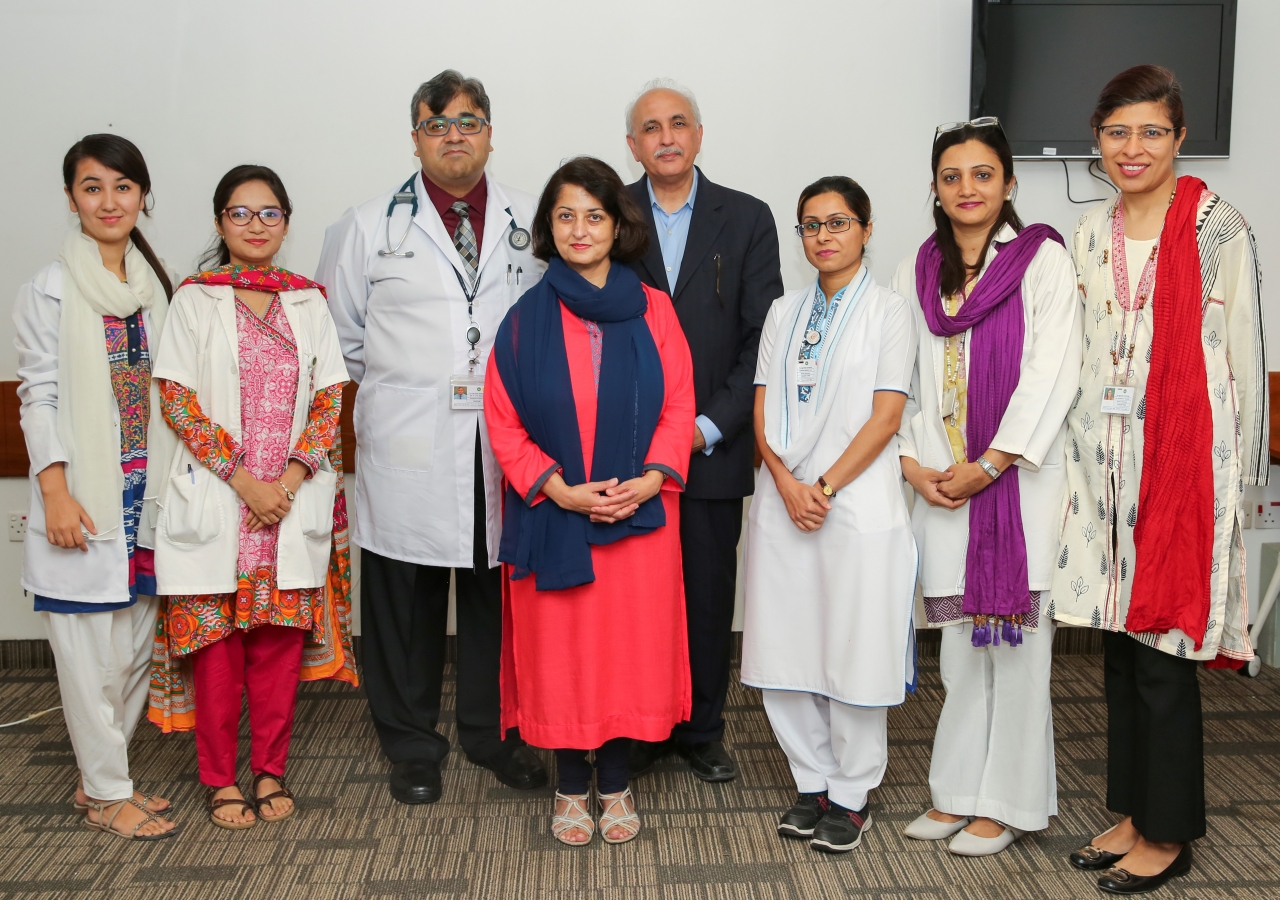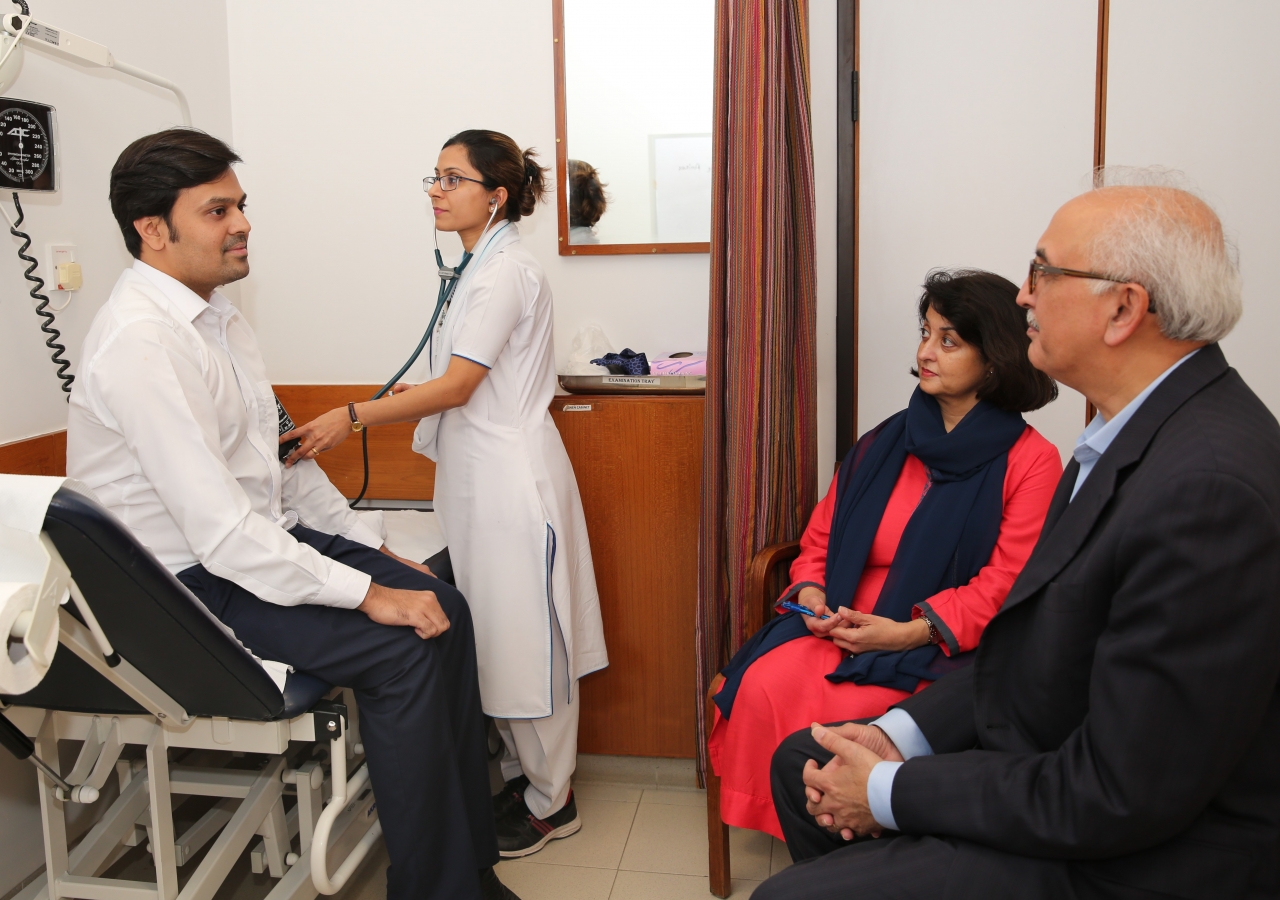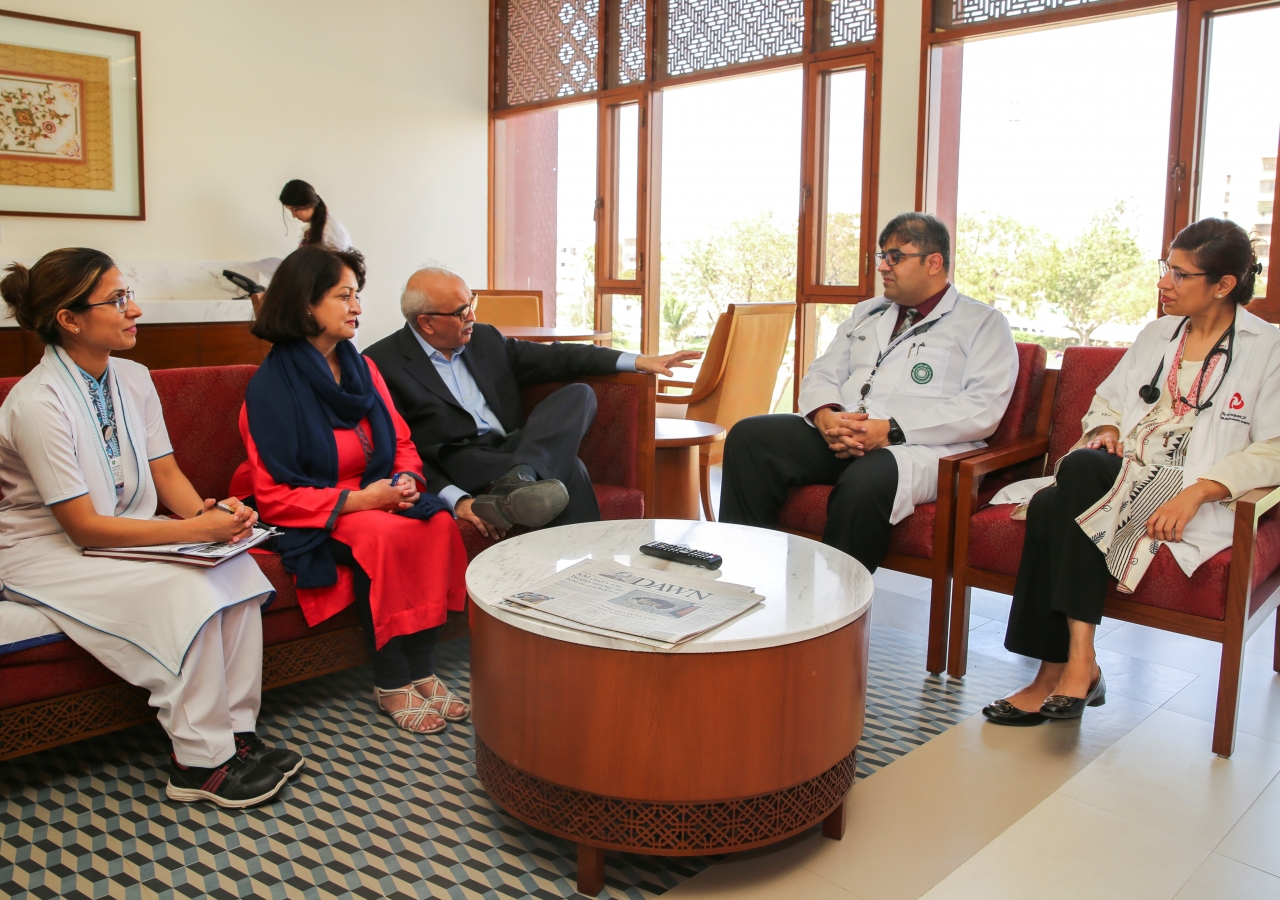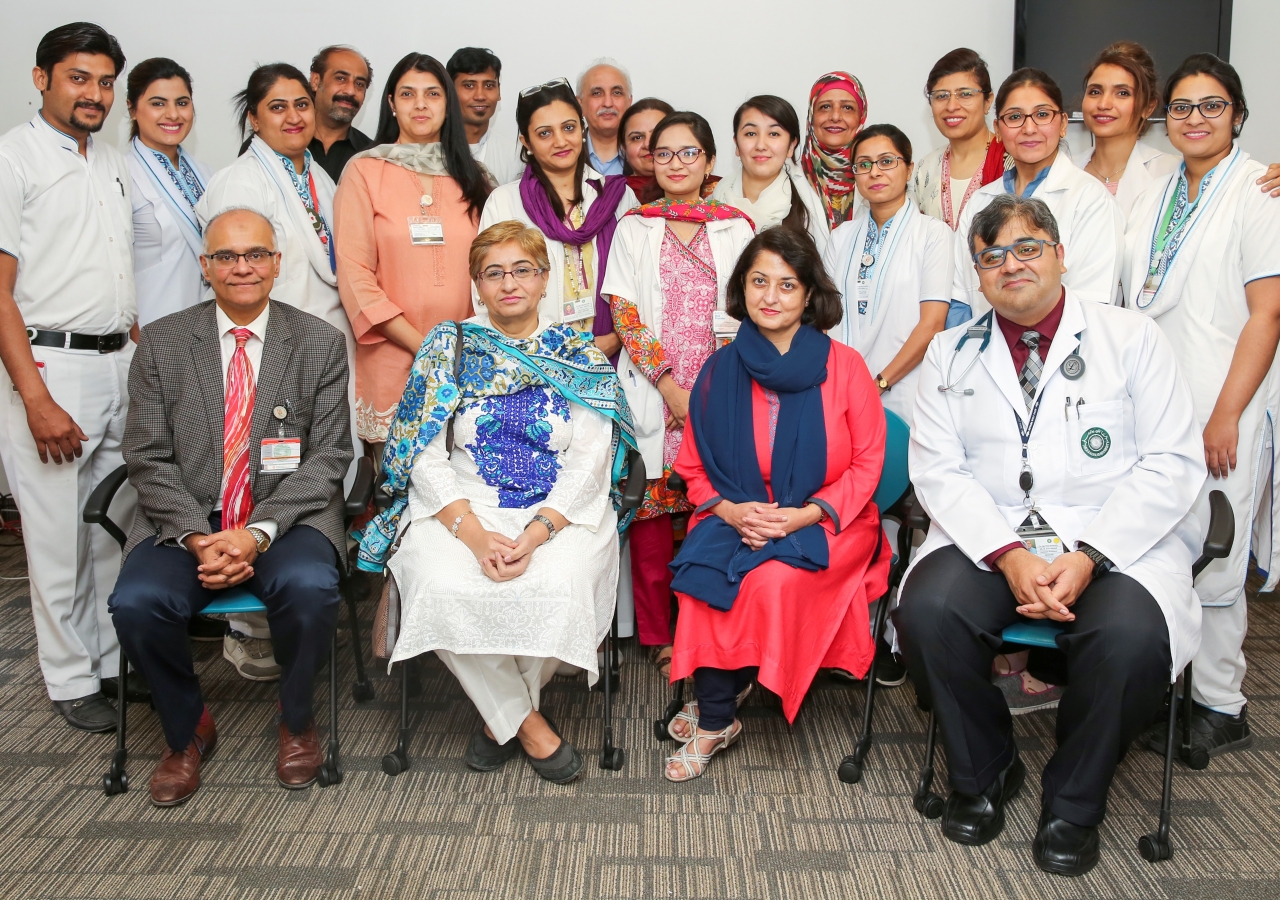This TKN assignment, initiated at the request of AKU President Firoz Rasul and Dr Saida Rasul, resulted in an innovative solution. While there had been efforts in this area in the past, a formal palliative care programme had not been established and the predominant option available to palliative patients was aggressive medical management.
Afzal Mangalji and Anar Shariff were the right people for the task. Afzal has nearly 40 years of professional experience with the Vancouver General Hospital, primarily in social work and palliative care. Anar has a background in health administration with 30 years of experience in the medical devices field and in conducting quality system audits.
Their work started in January 2017. At that time, Dr Atif Waqar from the USA had joined AKU, and a third of his work focused on the palliative portfolio. Afzal wrote a thought paper that outlined eight components, critical in implementing an effective and sustainable palliative programme. Over the past two and a half years, they held almost weekly conference calls on how to convert this thought paper into reality.
“The development of the programme took place step by step,” Afzal explained. “There was strong administrative support from leadership, but we had to first develop and build credibility for the palliative model. A Palliative consult team composed of physicians and a Nurse Navigator was set up to demonstrate the value and calibre of the service to the hospital’s numerous health care providers. This enhanced their understanding of palliative care and made them feel more comfortable in referring their patients and families to the programme.”
A key factor in bringing the program to life was having Dr Waqar on the ground. His knowledge of palliative care models in the USA, combined with his familiarity with the local culture and language, placed him in a unique position to advise Afzal and Anar about the cultural nuances that had to be taken into consideration. Moreover, he selected the palliative team members and delivered the required training to ensure a consistent approach.
On an annual basis, Afzal submitted a comprehensive report that documented progress on each of the eight components to keep AKU leadership fully apprised of developments. In February 2019, the couple visited the hospital in Karachi to conduct a two-year review of the programme.
“We wanted to have the on-site visit down the road so we could perform an objective evaluation of the programme after its establishment,” Anar said. “We interviewed more than 75 health care providers at all levels of the organization, met with patients and families, and conducted chart audits. We also spent time with the both the hospital based and home care teams who all knew what we were collectively striving to achieve for the programme.”
A comprehensive draft review report of the palliative programme evaluation was sent to President Rasul in May this year, followed by a meeting with key decision makers at AKU in September. The group unanimously adopted the findings and 38 recommendations, and the final report was submitted to the President's Office in October 2019.
In developing the palliative programme, a number of outcome measures were identified. At the end of the first year, there were 1,100 palliative physician consultations within the hospital itself. The programme grew by 100% last year, with approximately 2,200 physician consultations, and growth is expected to continue. In addition, patients outside the hospital are receiving high-quality physician, nursing and allied discipline palliative care through the community component of the programme.
“Afzal and Anar worked diligently to develop palliative care at AKU,” said Dr Waqar. “The roadmap they developed was executed effectively and the resources and education they provided facilitated the teaching and training of frontline staff. Through their continuous support to make this a reality over the course of more than two years, AKU is on the map as the first institution in Karachi to provide palliative care services in the region.”
For Afzal and Anar, it was a privilege to build relationships with so many people at AKU and visit this part of the world for the first time. “The population in Karachi is so huge, and the demand on the health care system was an eye opener for us,” Afzal noted. “We saw first-hand the creative use of technology and resources to respond to this demand and had a glimpse of the life of the Jamat in this part of the world.”
Anar acknowledged the excellent partnership of the AKU team every step of the way. “We were so blessed to have this opportunity, and the institution made sure we had every support we needed. We have a real appreciation for the challenges that institutions face in providing health care, and we were honoured to contribute in some way.” AKU is most grateful to Afzal and Anar for their tireless efforts and outstanding contribution.

